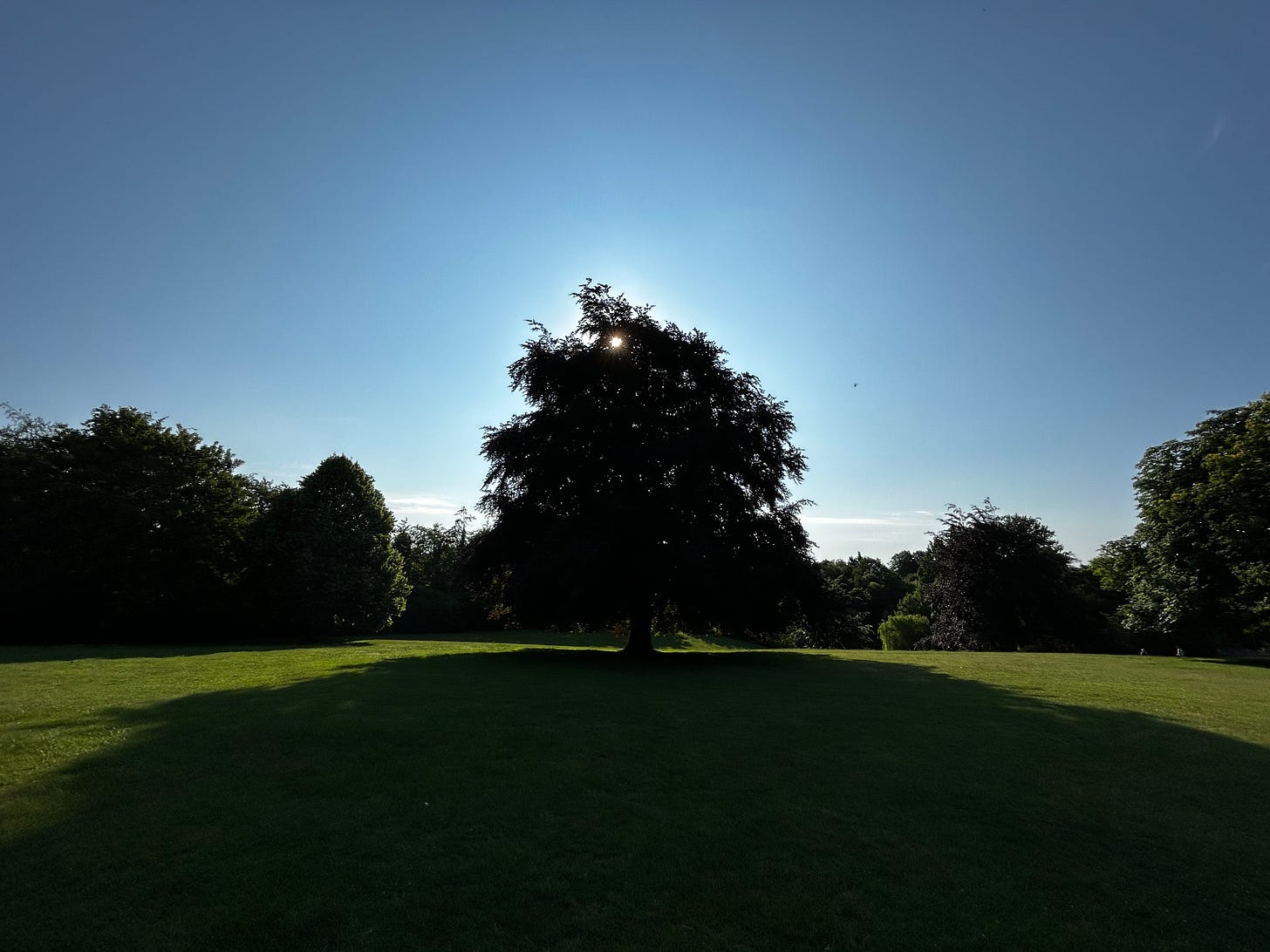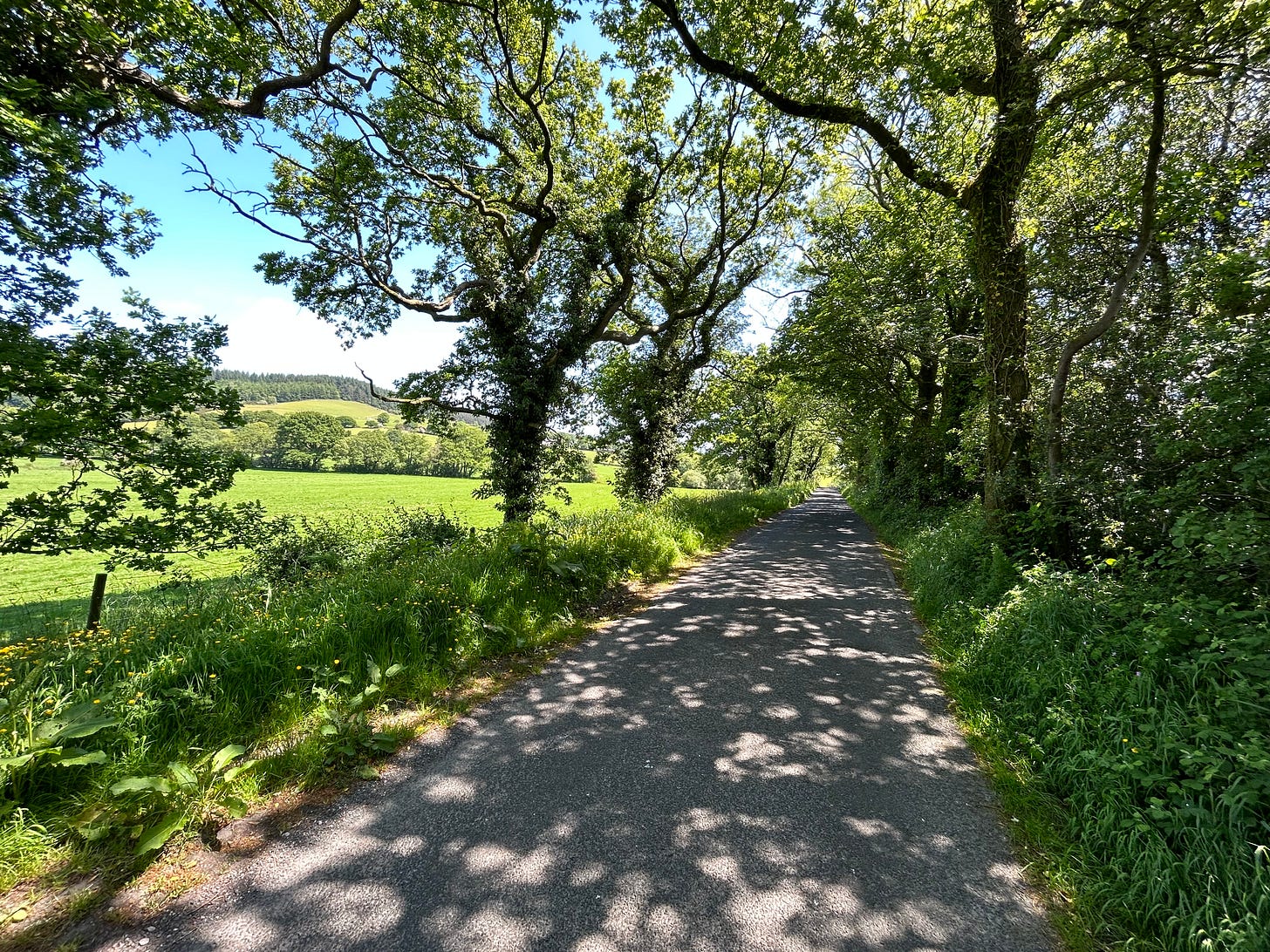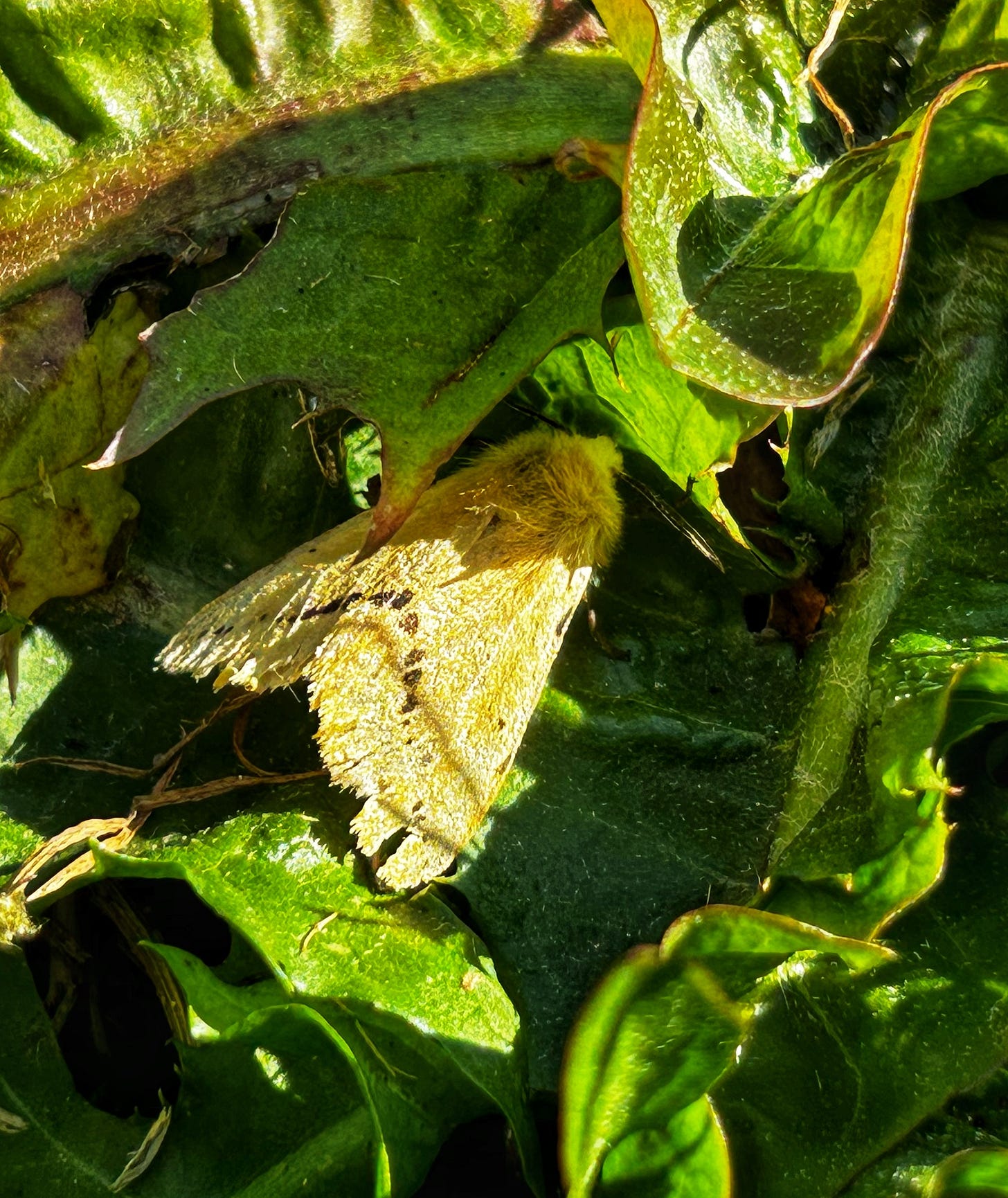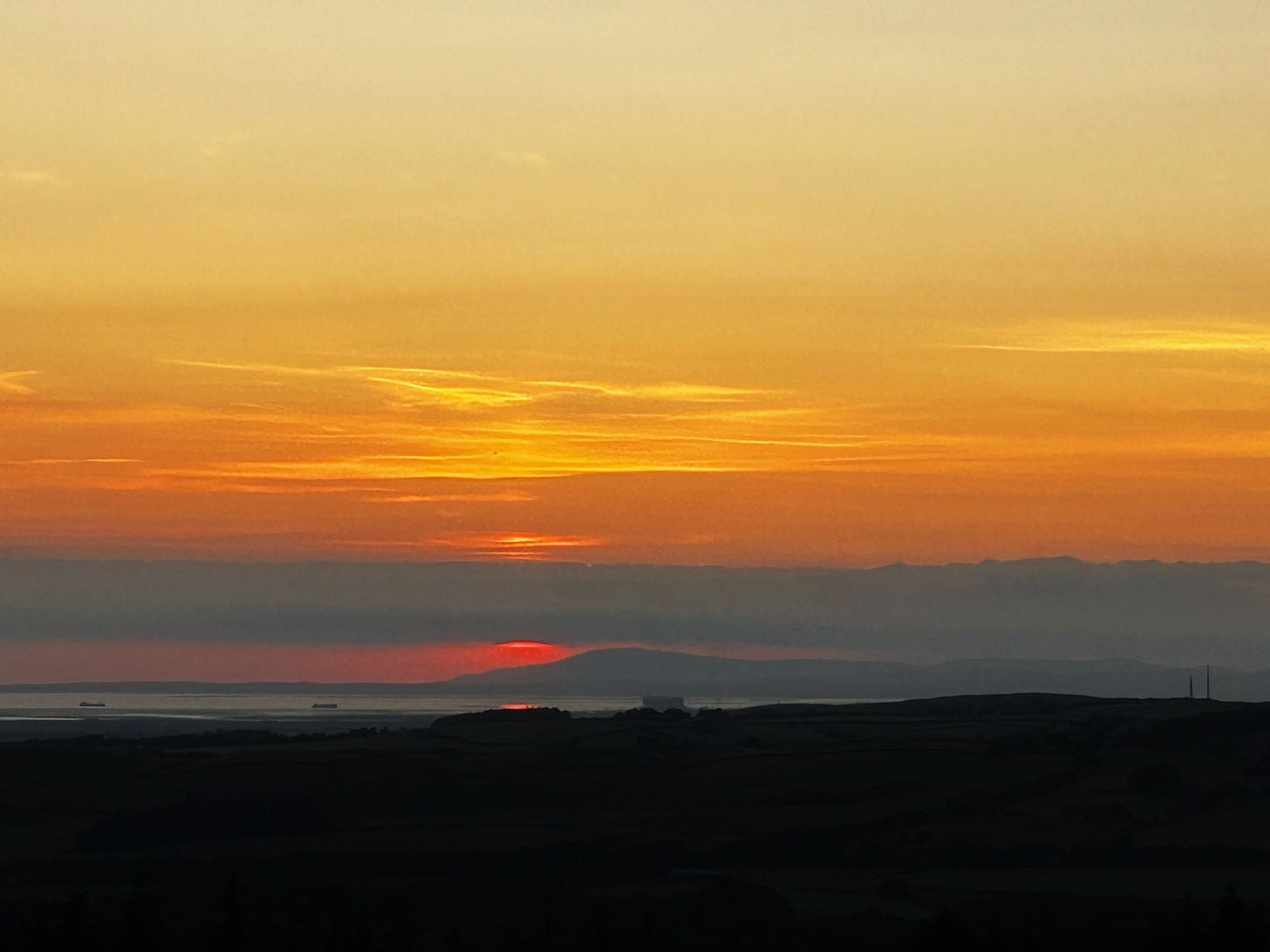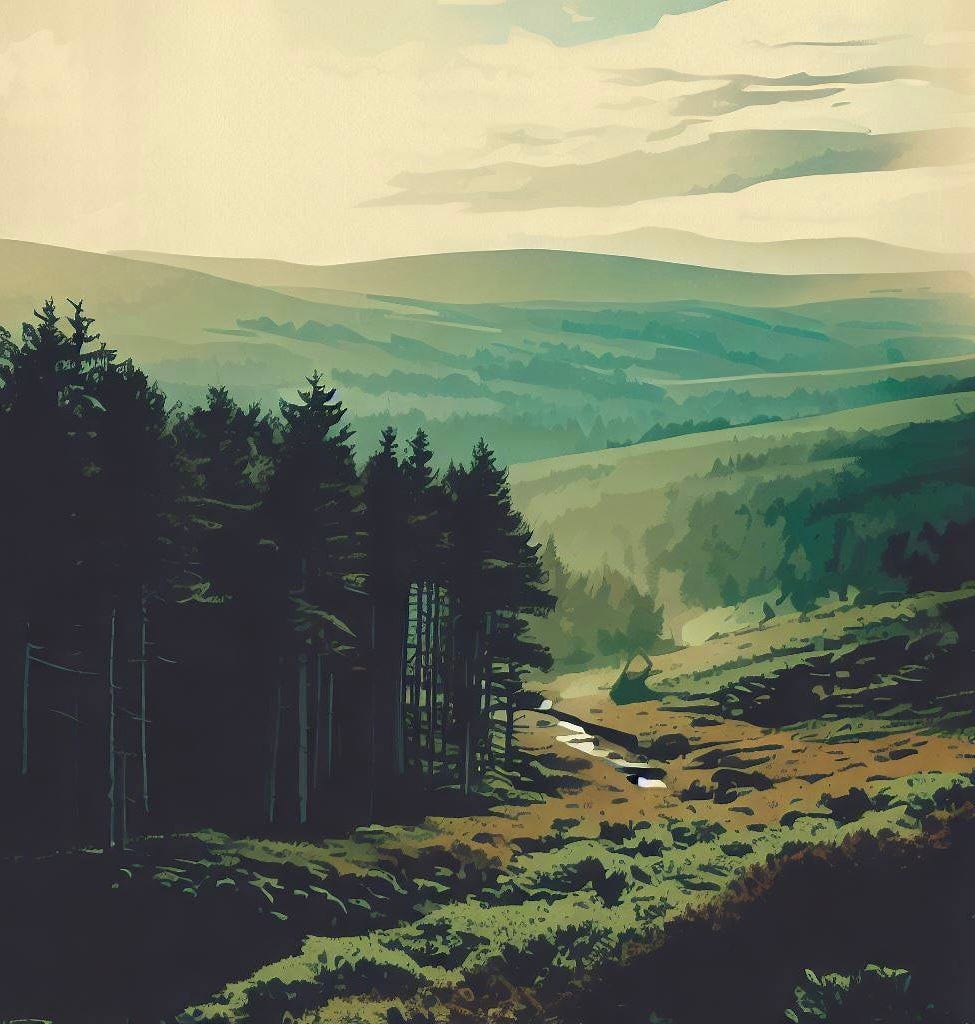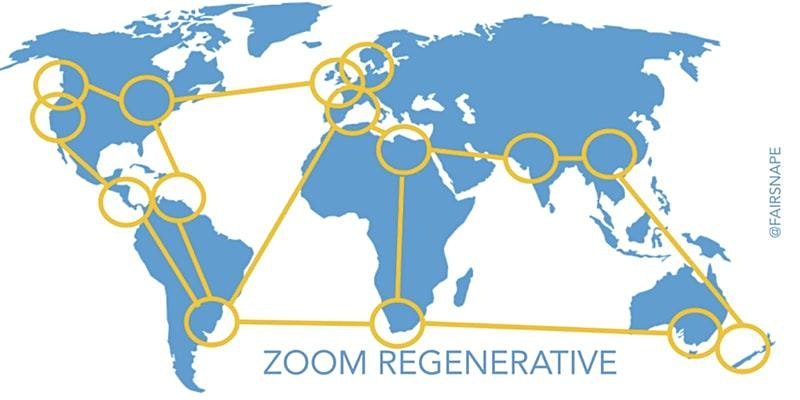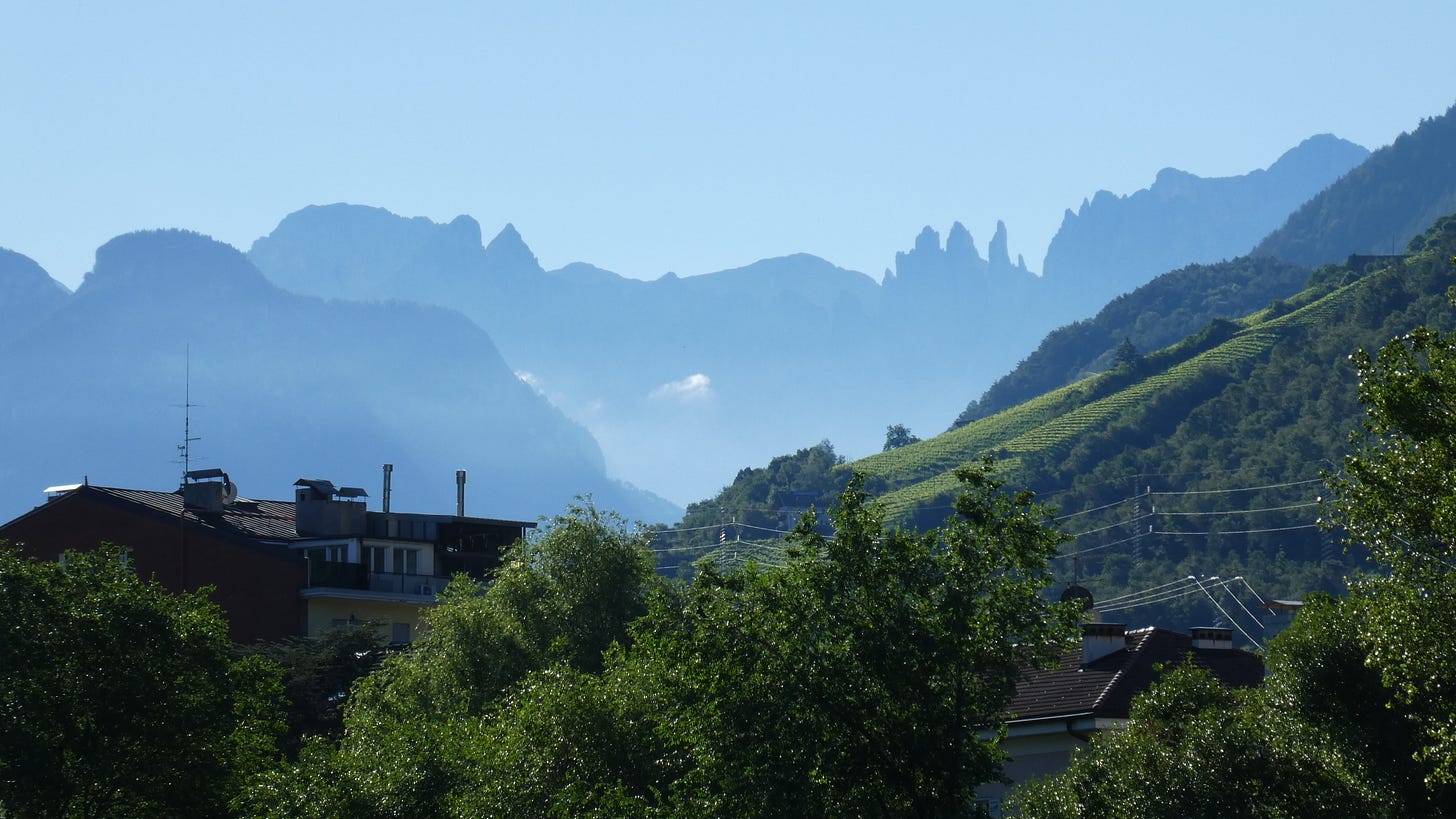Reconnecting.
Fixing our fragile and fractured connectivity with nature
Welcome to Regen Notes.1
"Some of them were dreamers
And some of them were fools
Who were making plans and thinking of the future
With the energy of the innocent
They were gathering the tools
They would need to make their journey back to nature"
Jackson Browne. Before the DelugeReconnecting our fragile and fractured connectivity with nature.
Here in the UK, we may consider ourselves a nation of nature lovers, and we express that in our millions as members of the National Trust, RSPB or Wildlife Trusts. However, we maybe the worlds the most disconnected country, having the lowest level of biodiversity across the world with poor national tree cover - at 13% far less than Europe where the average is 38%.
We are not at all as well connected as we think we are. There is the expression of Eutierria from Glen Albrecht (covered in earlier regen/notes) that describes that spontaneous and mutually enriching moment when we feel ourselves connected when we understand the flow and the interconnectedness of living systems.
Living in harmony with nature is alien to most of many and difficult to envisage in our modern world.
Our separation from nature is now regarded as the root cause of the climate, ecological, and even social crises that we face. And as recognised by many regenerative thinkers and practitioners it is the reconnection with nature that will truly enable us to address the wicked problems (such as energy, carbon, resources, and waste) that we have been trying to solve unsuccessfully, with silo initiatives, for decades. Reconnection with nature is the thread that weaves through all we are seeking to achieve in the world of sustainability.
The climate and biodiversity crisis cannot be solved without addressing the issue of how people relate to the wider natural world.
Fixing our Broken Relationship with Nature
Miles Richardson2 book is therefore a welcomed and timely addition, and as a reader of his regular blog, I particularly welcome the wider narrative afforded here.
While reading Reconnection I scribbled many notes, Post-its, underlined and annotated throughout the book. It is not surprising that Mark Cocker calls this a game-changing classic. Indeed, many blurb testimonials are bursting with positive praise from the UK eco literati and media (Alastair Humphreys, Sir Tim Smit, Magan McCubbin, Amy-Jane Beer, and Mellisa Harrison to name a few).
There are so many relevant 'gems' in Reconnection, but here is a selection of my notes and highlights…
“A journey from nature through our senses and nervous system to the heart”
Reconnection has the potential to reset biophilia thinking, building on recent data and survey analysis and the conclusions drawn. As such it should be on the reading list of all in design. Yet, there is a welcomed emphasis or shift away from data, away from measuring our connectedness as a number, or as time spent in nature towards moments noticing nature, feeling that sense of wonder or awe, and understanding better the interconnectedness. Reconnection is about relationships not numbers or data.
In ‘Tools for Change’, Miles explores the role of education in fostering connectivity and relationships with nature ... transmitting scientific knowledge in an anthropocentric and rational way suppresses emotional content. When children are taught to understand through maths and formulae, the measurable becomes primary. Emotions and relationships, what it is to be a human as part of nature, becomes secondary. That which can be ranked, indexed and measured becomes the reality Green becomes #OOFFOO in hex code. Yet transferring information and knowledge is the focus of many attempts to connect children with nature.? In sum, our focus needs to shift from delivering knowledge to building relationships.
Pathways to Reconnection
Developed over time and a core element here is the Reconnection Pathways structure - a powerful biophilic design guide.
Senses: Noticing and actively engaging with nature through the senses. Simply listening to birdsong, smelling wildflowers, or watching the breeze in the trees.
Emotion: Engaging emotionally with nature. Simply noticing the good things in nature, experiencing the joy and calm they can bring, and sharing feelings about nature with others.
Beauty: Finding beauty in the natural world. Simply taking time to appreciate the beauty in nature and engaging with it through art, music, or words.
Meaning: Exploring and expressing how nature brings meaning to life. Simply exploring how nature appears in songs and stories, poems and art, or by celebrating the signs and cycles of nature.
Compassion: Caring for nature. Simply thinking about what we can do for nature and taking actions that are good for nature, such as creating homes for nature, supporting conservation charities and rethinking our shopping habits”?
Noticing Good Things.
Noticing three good things in nature daily (explored many times in the book) is a powerful pathway into connectivity. I did this as part of one of Miles's earlier blog posts and an exercise I now use in workshops. Noticing three good things daily for a month certainly deepens as the month proceeds, and shifts from a passive “I saw ... “ to an active, engaged “seeing .... made me feel” and to a relationship of “I wonder why seeing ... made me feel as I do”
Reconnection Positive Behaviour
The focus on climate change over wildlife loss is odd ... we don’t yet tend to have a relationship with the climate and climate change; although currently very real for some, it is an intangible threat decades away for many. The loss of most of the wildlife since 1970, on the other hand, is tangible and real. The actions people can take to make a difference in terms of wildlife loss are also more positive than the positive inaction required to help make a difference in climate change. … creating homes for nature locally is a positive action that brings rewards of local wildlife. Whereas using less hot water is posit inaction - doing less for no visible reward.
Reconnection through environmental and biophilic frameworks
Miles Richardson explores the fracture between humans and nature within environmental frameworks and solutions. For example, the SDGs, where none of the 17 focus goals focuses on improving the relationship between humans and the rest of the world. And likewise, with the Stephen Kellerts framework that can be seen as a checklist of materials and physical elements for inclusion, and that where this becomes the focus then the necessary emotional level of engagement for connectivity is lost. In addition, how nature-based solutions are often overlooked in well-being guidance.
Disconnecting the Selfie
We found that higher smartphone use was related to the number of selfies taken and that a weaker relationship with nature was linked to higher levels of selfie-taking and smartphone usage times. Those who had a close relationship with nature used their phones half as much each day, took 90% fewer selfies and took 300% more pictures of nature than those with a weaker relationship with nature. That’s quite a difference! No surprise, then, that people with higher smartphone use had a significantly weaker relationship with nature.
Connection by Design
The final chapter weaves Reconnection threads together in exploring the design of habitats for connection. This is vital. However, I would like to see this turned around to be Connection by Design. As reconnection with nature is at the core of addressing climate, ecological and social poly-crisis then Connection by Design must become the over-riding design criterion and must trump, eclipse and core purpose for the increasingly siloed Low Carbon by Design and Health by Design initiatives.
Reconnection is simply about being a human within the whole of nature.
Upcoming and Related Events
Recalibrating architecture for the Regenerative Age with Jo Petroni
Zoom Regenerative took a break in June (my time was directed to family time around my sons' wedding) but returns on the 25th of July with Jo Petroni sharing insights from her Listen to the Land work, her substack letters and time at the Klosters conference.
Biophilia Camp 23
Our Living Future Europe second Biophilia Camp takes place September 25-28 in the Italian Dolomites. This edition promises to be another inspiring biophilia retreat that will nourish our minds, further our understanding of biophilia and reconnect us with the natural world. The camp is open to all disciplines, where alongside biophilia in the built environment, we will be exploring biophilia in other sectors including fashion, agriculture and all that seek to reconnect and enable life to thrive.
This is truly a unique event that will be reached from Bolzano by cable car, train and short forest walk. Early bird options available now
Welcome to Regen Notes - a companion to Zoom Regenerative where we connect the spaces between regenerative dots, sharing ideas themes and work that invigorates and inspires. Thank you for subscribing, if you are not a subscriber as yet, then please do consider doing so to receive new posts and support Regen/Notes
Miles Richardson is the Professor of Human Factors and Nature Connectedness at the University of Derby, where he founded the Nature Connectedness Research Group. He has pioneered widely adopted and award-winning approaches to improving the human-nature relationship. he is an author of dozens of scientific papers, and he advises nationally and internationally on uniting human and nature’s well-being.

